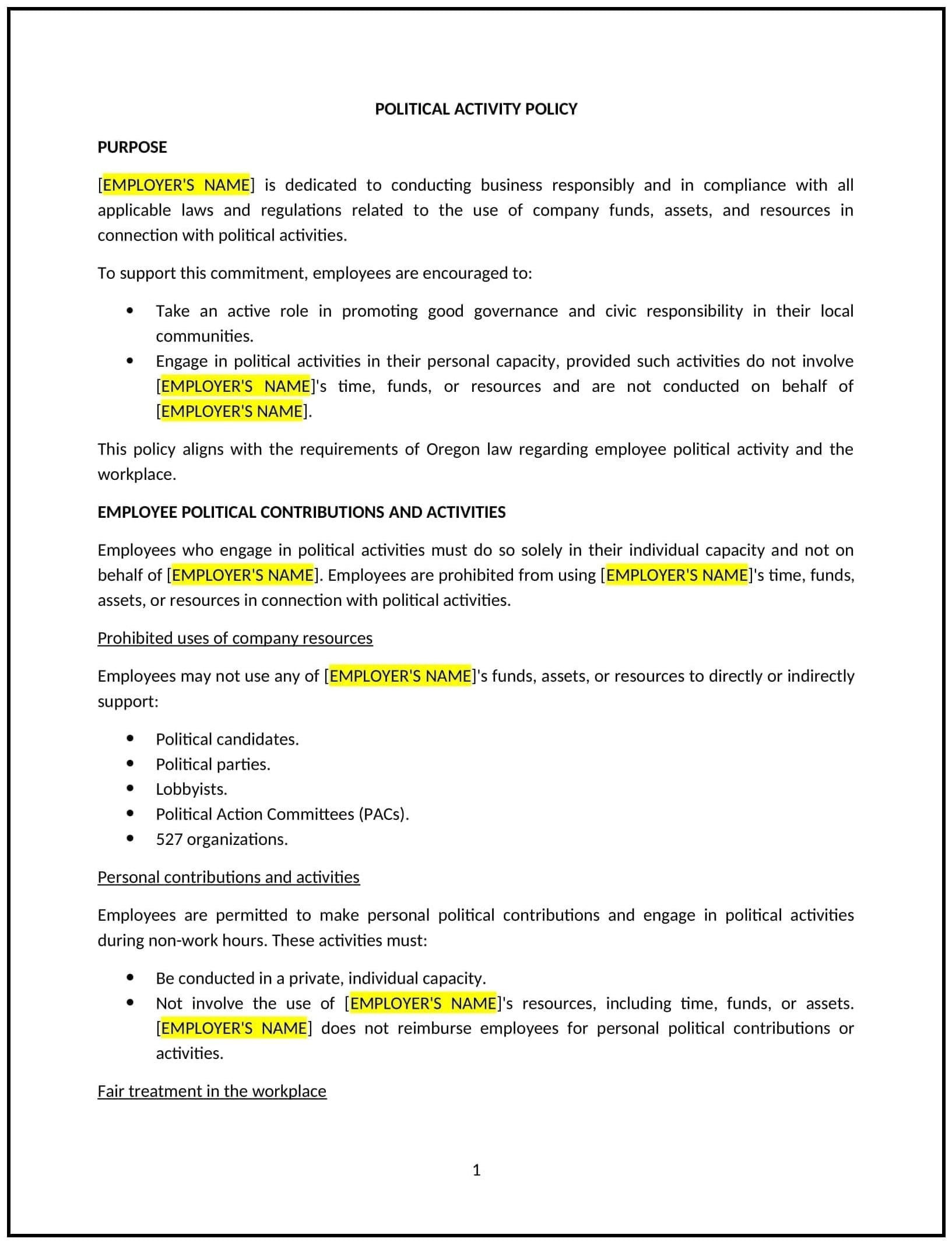Got contracts to review? While you're here for policies, let Cobrief make contract review effortless—start your free review now.

Customize this template for free
Political activity policy (Oregon)
This political activity policy is designed to help Oregon businesses establish guidelines for employee participation in political activities during work hours or using company resources. It clarifies boundaries to maintain professionalism and avoid conflicts of interest.
By adopting this policy, businesses can promote a neutral workplace, protect their reputation, and ensure productivity during work hours.
How to use this political activity policy (Oregon)
- Define political activity: Clarify what constitutes political activity, such as campaigning, fundraising, or lobbying.
- Set boundaries: Specify whether employees can engage in political activities during work hours or using company resources.
- Address conflicts of interest: Prohibit employees from using their position to influence political outcomes on behalf of the business.
- Establish communication guidelines: Outline rules for discussing political topics in the workplace to maintain a respectful environment.
- Train employees: Educate staff on the policy and its importance for maintaining professionalism.
- Review and update: Assess the policy annually to ensure it aligns with evolving business needs and legal standards.
Benefits of using this political activity policy (Oregon)
This policy offers several advantages for Oregon businesses:
- Promotes a neutral workplace: Ensures the business remains impartial and avoids political controversies.
- Protects reputation: Reduces the risk of the business being associated with partisan activities.
- Ensures productivity: Minimizes distractions caused by political discussions or activities during work hours.
- Enhances professionalism: Maintains a respectful and focused work environment.
- Reduces legal risks: Helps businesses avoid potential conflicts of interest or violations of campaign finance laws.
Tips for using this political activity policy (Oregon)
- Communicate the policy: Share the policy with employees and include it in the employee handbook.
- Provide training: Educate staff on the policy and its importance for maintaining professionalism.
- Monitor compliance: Regularly review workplace activities to ensure adherence to the policy.
- Address issues promptly: Take corrective action if political activities disrupt the workplace or violate the policy.
- Update regularly: Assess the policy annually to ensure it aligns with evolving business needs and legal standards.